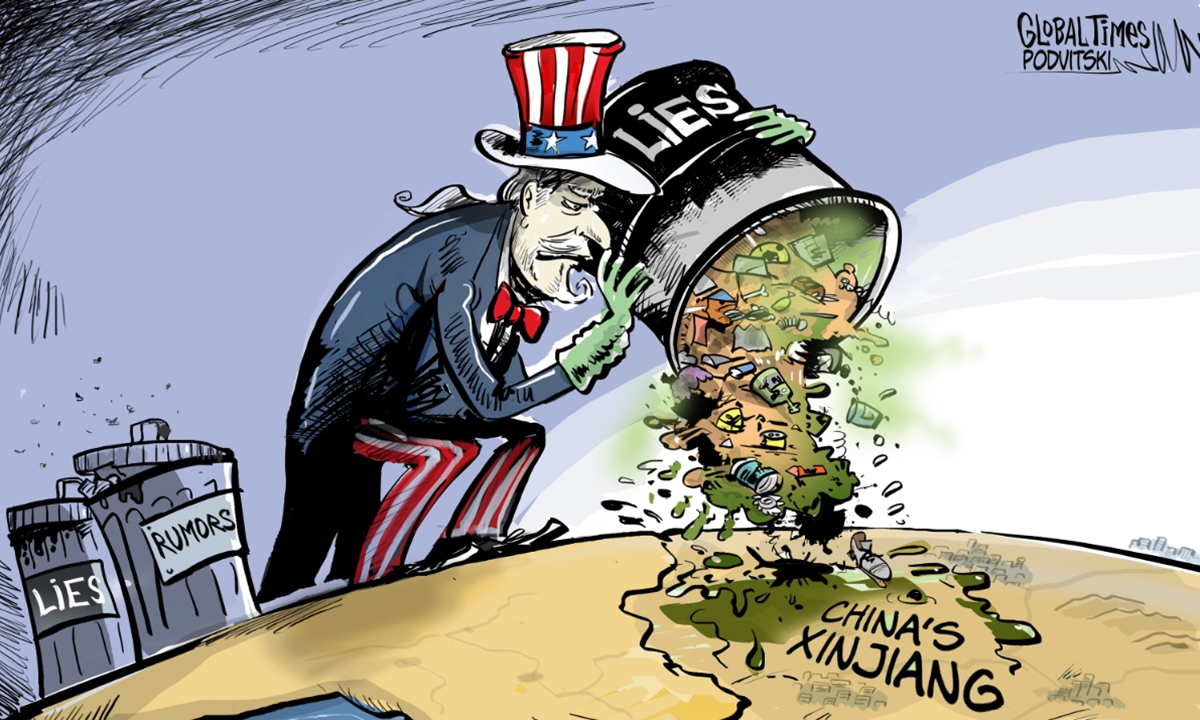
The Worrying Corrosion of the US 1-China Policy
Regarding the structure of the U.S. government, foreign policy is generally shared between the president/executive branch and the Senate, while the House of Representatives can only focus on a limited area of foreign policy. Because the Senate currently has a weak majority of Democrats, the same party that is in the White House/executive branch, Republicans are taking advantage of their control of the House in the face of the 2024 presidential election. They are harnessing the current anti-China mood to propose motions and bills that will embarrass the Democrats because of their impossibility. Why shouldn’t they, if they can embarrass the Democrats and also reveal their incompetence while playing to voters?
Regarding its China policy, the current Democratic Biden administration wants to put on the brakes, pull back and seek stability. Moreover, it is already reviewing its policies toward the Taiwan Strait. Frustratingly, the officials involved are really rather unseasoned, and thus are easily distracted by side issues (such as the balloon incident).
The messaging from Washington indicates that in addition to the uncertainty in Russia and Ukraine, Washington has two demands of Beijing: First, in the short run, the U.S. hopes the CCP will purchase more of its national debt. This is a serious matter that relates to American financial stability and even the continuance of U.S. dollar hegemony. Secretary of the Treasury Janet Yellen has repeatedly expressed a desire to visit Beijing, which is related to the first issue. Second, something more long term — in the latter half of the year (November), the Asia-Pacific Economic Cooperation will have an informal summit of leaders in Washington, which Biden hopes Xi Jinping will attend. However, because of the unseasoned way the officials involved are handling things, the situation has become rather chaotic. The simplest example of this is that during the balloon incident, President Joe Biden’s explanation differed from that of officials. Moreover, for its own interests, Taiwan’s Democratic Progressive Party government distorted the words of U.S. officials in translation, making the situation even more chaotic.
For example, in an interview with Jeffrey Goldberg, editor-in-chief of The Atlantic, Antony Blinken said that the crisis in the Taiwan Strait was not an issue of Chinese internal affairs. Many media outlets in Taiwan saw this as a big news story, possibly because they did not understand the historical background of the statement, and also due to guidance from the DPP administration.
Actually, as early as the 1960s, the CCP’s determination of the Taiwan issue and the cease-fire in the Taiwan Strait was entirely different. The CCP defined the Taiwan issue as an internal matter, the resolution of which could not be discussed with Americans. However, the cease-fire in the Taiwan Strait was a historical legacy and an international matter that could be discussed with the U.S. For this reason, when Blinken said that the crisis in the Taiwan Strait is not an internal matter of the CCP, he was not wrong, and this was nothing new. He was simply pulling a fast one by skating around the interpretation.
When thinking of America’s short- and medium-term demands of the CCP, look at some of its current practices and messaging methods, content and context. Perhaps Michael Swaine, a senior research fellow at the Quincy Institute for Responsible Statecraft, is correct: While there is no immediate crisis between the U.S., China and Taiwan, America’s one-China policy is exhibiting some worrying corrosion.


